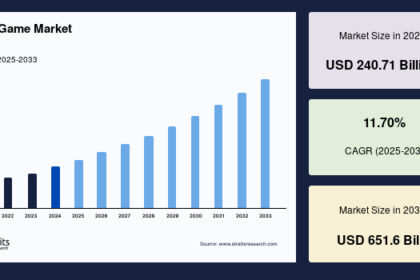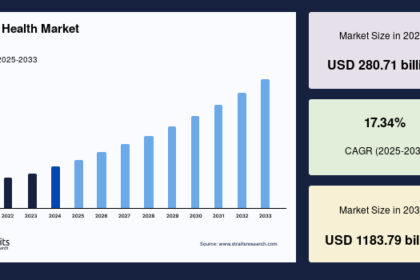In B2B marketing, understanding how prospects interact with your brand is essential for driving demand and growing revenue. Customer Journey Mapping provides a structured framework to visualize each interaction a potential buyer has with your business. This approach allows marketers to identify friction points, optimize touchpoints, and develop campaigns that increase engagement, nurture leads, and accelerate the sales pipeline.
Creating Detailed Buyer Personas
Effective customer journey mapping begins with creating detailed buyer personas. B2B organizations typically deal with multiple stakeholders, including procurement managers, technical leads, and executives. Each persona has distinct challenges, goals, and preferences. By documenting these insights, marketers can deliver content and experiences tailored to each persona, ensuring that communications are relevant and persuasive throughout the journey.
Mapping the Stages of the Buyer Journey
A B2B buyer journey usually consists of four main stages: awareness, consideration, decision, and post-purchase engagement. During the awareness stage, prospects recognize a problem and start seeking solutions. In the consideration stage, they evaluate different vendors and solutions. The decision stage leads to selecting a provider, while post-purchase focuses on retention, loyalty, and advocacy. Mapping these stages helps marketers align content and campaigns with buyers’ needs at each point.
Collecting and Analyzing Data
Data-driven insights are crucial for accurate customer journey mapping. Quantitative data, such as website analytics, email metrics, and CRM activity, provides measurable insights into prospect behavior. Qualitative data, including customer surveys, interviews, and feedback sessions, offers context and understanding of motivations and challenges. Combining both types of data ensures that journey maps accurately reflect real buyer behavior, providing a foundation for targeted and effective campaigns.
Visualizing the Customer Journey
Once data is collected, visualizing the journey helps teams understand the complete buyer experience. Journey maps should include key touchpoints, channels, buyer emotions, and potential pain points. Using diagrams, flowcharts, or timelines makes complex information easy to understand and actionable. Visualization enables marketing and sales teams to identify gaps, optimize processes, and deliver a seamless experience that enhances engagement and conversion rates.
Aligning Content With Each Stage
Content plays a central role in B2B demand generation and must align with the buyer’s journey. During awareness, educational content such as blogs, webinars, and eBooks introduces your brand and builds credibility. In the consideration stage, case studies, product comparisons, and demos help buyers evaluate solutions. At the decision stage, personalized proposals, ROI calculators, and consultations address objections and encourage purchase. Tailored content ensures relevance, builds trust, and moves prospects closer to conversion.
Leveraging Marketing Automation
Marketing automation and CRM systems are essential for executing journey-based strategies. Automated workflows deliver content based on buyer stage and engagement behavior, while CRM platforms track interactions across multiple channels. This ensures consistent communication and enables sales and marketing teams to coordinate efforts effectively. Automation also provides data-driven insights, allowing for timely interventions and optimization of campaigns for better performance.
Sales and Marketing Collaboration
B2B demand generation is most effective when sales and marketing work closely together. Sales teams provide insights into customer objections, questions, and expectations, which can inform content strategy and campaign design. Shared dashboards, regular meetings, and aligned KPIs ensure both teams are synchronized. Collaboration improves lead quality, accelerates the sales cycle, and delivers a consistent and positive experience for prospects.
Personalization for Increased Engagement
Personalization is a key strategy in B2B marketing. By tailoring messages based on industry, company size, buyer role, or previous interactions, organizations can improve engagement and conversion rates. Techniques such as account-based marketing, dynamic content, and personalized email campaigns ensure that prospects receive relevant information at the right time. Integrating personalization with customer journey mapping amplifies the impact of campaigns and builds stronger connections with buyers.
Post-Purchase Engagement and Retention
Customer journey mapping extends beyond acquisition to post-purchase interactions. Onboarding, support, training, and follow-up communications are critical for maintaining satisfaction and loyalty. Mapping these touchpoints helps businesses identify opportunities for upselling, cross-selling, and advocacy. Strong post-purchase engagement fosters long-term relationships and transforms customers into brand ambassadors who contribute to sustainable revenue growth.
Continuous Testing and Optimization
No journey map is complete without continuous testing and optimization. A/B testing emails, landing pages, and content offers helps determine what resonates with buyers. Tracking KPIs such as engagement rates, lead-to-opportunity conversions, and revenue contribution provides actionable insights. Iterative improvements ensure that B2B demand generation strategies remain relevant, effective, and aligned with evolving buyer behavior.
Strategic Benefits of Customer Journey Mapping
Integrating customer journey mapping into B2B demand generation delivers multiple strategic benefits. It enhances alignment between sales and marketing, improves buyer experience, and drives data-informed decision-making. By identifying pain points and opportunities, organizations can optimize marketing spend, accelerate pipeline velocity, and strengthen customer relationships. Businesses that consistently apply journey insights position themselves for higher-quality leads, faster conversions, and long-term growth.
About Us : Acceligize is a global B2B demand generation and technology marketing company helping brands connect with qualified audiences through data-driven strategies. Founded in 2016, it delivers end-to-end lead generation, content syndication, and account-based marketing solutions powered by technology, creativity, and compliance.



